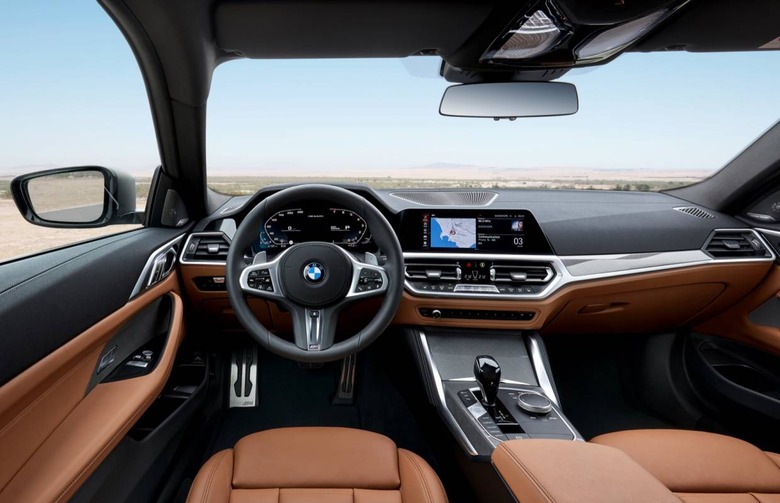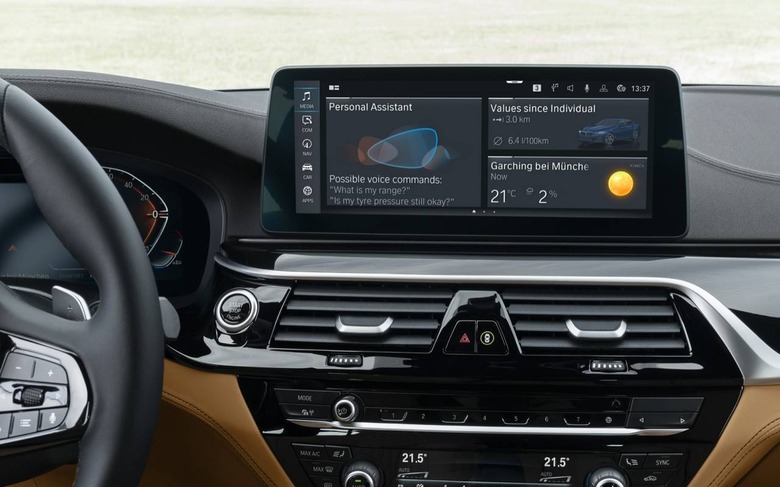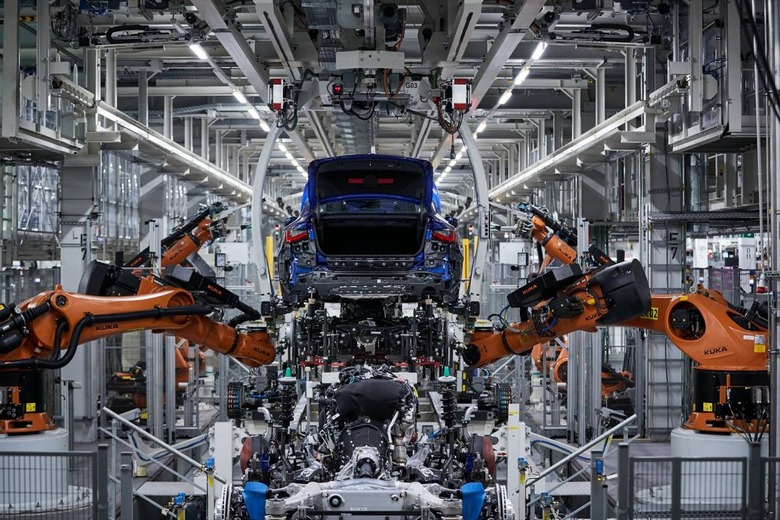BMW's in-car store will sell or rent features like game DLC
BMW plans to offer drivers an in-car catalog of temporary or permanent feature upgrades, allowing owners to add things like driver-assistance or comfort tech to their vehicle just like you might subscribe to a service on your phone. The upgraded BMW ConnectedDrive Store will offer trials of hardware that was built into the vehicle at the factory, such as heated seats or advanced cruise control, but left disabled because it wasn't on the original order sheet.
It isn't an entirely new move for the automaker. BMW already offers a selection of post-purchase upgrades, including adaptive cruise control and Adaptive M Suspension. 12 months of real-time traffic updates, for example, will cost you $50; 15 months of traffic camera warnings are $25. However it plans to go even further with that, and offer more flexibility around how features are bought and which are available.
There'll be a trial period – perhaps a month or three months, BMW says – after which time owners will be able to purchase the feature for one or three years, or possibly even shorter periods such as a few months. It's unclear whether that will mean the end of permanent purchases, something which could well end up varying on a feature-by-feature basis.
On the face of it, it's a good idea. There are, undoubtedly, "nice to have" features on modern cars that are still far from essential. Similarly, options that seemed too much of a stretch at the point of purchase might make more sense several months into ownership or, in the case of things like heated seats or navigation, only show their worth when the winter sets in or there's a long road-trip ahead.
While post-sale upgrades have been possible in some circumstances, they're usually limited in range, and demand the vehicle be taken into a dealership to be professionally fitted. Being able to activate them immediately with a few taps in an app, or on the car's own touchscreen, would be much more streamlined.
At the same time, there are also features which might only really make sense for limited periods. Only having to pay for a cold weather package, for example, when the weather is actually cold might work out cheaper than paying for it to be added permanently.

BMW isn't the first to look to post-delivery upgrades, of course. Tesla arguably began the trend, relying on the connected nature of its cars to allow owners to unlock more power or range. That's much easier in an electric vehicle, of course, than squeezing more horsepower out of an internal combustion vehicle.
Because of that, other automakers have tended to focus on secondary features for their in-car upgrades. Audi, for instance, will offer a post-purchase marketplace in vehicles like the new Q5, with owners able to add things like navigation to the MIB3 infotainment system. Buyers will be able to purchase a feature permanently, or for a 1- or 12-month period.
Others seem likely to follow suit, though typically it requires adopting a new underlying platform before the full extent of such ad-hoc upgrades can be enabled. That generally coincides with a whole new vehicle, being too big a challenge for a mid-cycle refresh.

Cadillac, for example, has used a completely new electronic architecture for its CT4 and CT5, with the feasibility of comprehensive OTA updates one of its prime motivators. Down the line, the automaker has said, it could theoretically deliver new features like wireless Apple CarPlay and Android Auto, which the cars don't offer at launch. Of course, just because Cadillac can, that doesn't mean it will choose to do so.
Permanent feature-adds are one thing, but those added temporarily could lead to confusion down the line. It's unclear whether a vehicle sold partway through a one-year subscription to a navigation package, for example, would allow access to that service to be transferred. Automakers could choose to wipe out any post-delivery add-ons that owners have selected when a car changes hands, or to do so only for time-limited rather than permanent additions. We've already seen one high-profile backlash, with BMW's decision to make Apple CarPlay a subscription service walked back after consumer outcry.

For BMW, expanding the ConnectedDrive Store to cover hardware obviously requires vehicles be outfitted with that hardware from the factory. That's in contrast to today, where if you don't order heated seats, for example, then they won't be physically installed. Any addition to the bill of materials per vehicle could well be outweighed by the convenience of cutting down the number of different configurations, not to mention whatever uptick in spend comes down the line as drivers get to add to their vehicles throughout ownership – and once those vehicles change hands.
Update: As you might expect, it's very early days for just how this whole system will play out. According to BMW USA's Justin Berkowitz, Manager of Technology and Innovation Communications, the decision around which features might be offered as time-limited subscriptions – versus which could be permanent additions to the car – will all come down to the nature of the features themselves. There's a pilot trial in the US underway for BMW Drive Recorder, Berkowitz explained, and the expectation is that within the next year or so that trial will be expanded with additional features.
As for what happens at the point of resale, a lot of that will come down to individual countries or state consumer laws. Permanently-added features – those with a one-time payment – are highly unlikely to be removed, Berkowitz suggests; BMW says it will comply with any legal requirements. Similarly, as for what hardware might be fitted at the factory on the speculative assumption that owners may one day want to enable it, that will come down to a balance of the bill of materials, the overall weight of the car – a particularly important factor in locations where CO2 emissions are a key to vehicle taxation – and what BMW believes may be in demand down the line. Much as vocal feedback shaped the CarPlay subscription decision, so BMW will look to the market for feedback as to just how this expanded ConnectedDrive Store will actually operate.
